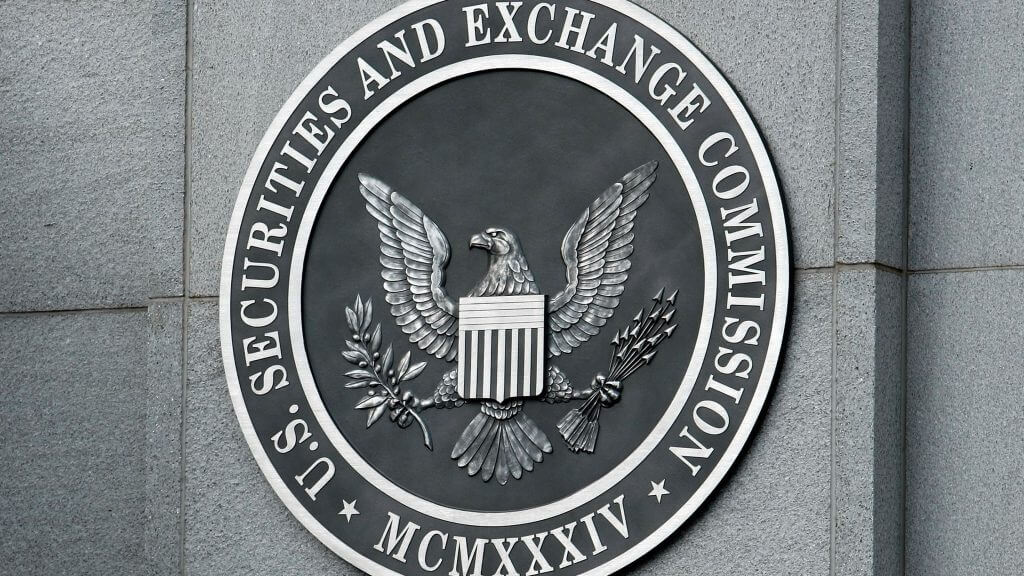ICO Misconduct Takes Center Stage in SEC Enforcement Report

Crypto startup Gladius Network tattled on itself to the SEC before the US regulatory agency could bring down the hammer on the illegal ICO issuer. | Source: Shutterstock
Despite the fact that the US Securities and Exchange Commission (SEC) has yet to craft a clear regulatory framework for cryptocurrencies, the agency placed a great deal of emphasis on the space this year, particularly on initial coin offerings (ICOs). The SEC’s Division of Enforcement published its fiscal year 2018 annual report, the second one of its kind in which it spotlights its ability to crack down on fraud in the financial system and protect Main Street investors.
ICOs Front and Center in SEC Enforcement Report
This year, ICOs were a key theme throughout the document, as evidenced by nearly 30 mentions and an entire section dedicated to the agency’s activity in identifying misconduct tied to “digital assets and initial coin offerings,” as per the report .
Given what the SEC described as an “explosion” of ICOs this year, they were selective in the deals that they pursued in an attempt to send the most effective message to issuers both in the US and internationally where they market to US investors. Fundraising, meanwhile, is on the decline, with the tally for September failing to surpass $300 million versus $3 billion in January 2018.
Perhaps it was the regulatory crackdown on ICOs in the US surrounding the registration of security tokens that has spooked issuers and influenced investors, as “registration violations” were a key focus of the SEC’s report. The SEC’s influence over the ICO market this year despite a lack of regulation is apparent in the reversal of the trend in celebrity endorsements of token offerings, which the agency “urged caution around” and “brought almost an immediate end to such promotions.”
High-Risk Investments
The SEC says it’s looking to strike a balance between protecting Main Street investors from fraud and scams “without stifling innovation and legitimate capital formation.” Taking a page out of former Fed chairman Alan Greenspan’s book, the report also suggests “exuberance around these markets can sometimes obscure the fact that these offerings are often high-risk investments.”
One of the key risks is something that has been well documented, and it surrounds investing in a project with no history of performance or a viable product let alone revenue or adequate cybersecurity. Meanwhile, there is a pattern of issuers claiming to use blockchain technology but that are “simply outright frauds cloaked in the veneer of emerging technology,” the report says.
Over the past year, the SEC has issued more than 12 “stand-alone enforcement actions involving digital assets and ICOs,” including deals that raised tens of millions of dollars from investors. Titanium Blockchain was one of them, which after raising $21 million in an ICO was charged with allegedly falsifying information about key relationships with the likes of the Fed, PayPal, and others. Another unnamed ICO allegedly “promised a 13-fold profit in less than a month.” In addition to ICO startups, the enforcement agency also pursued TokenLot, which allegedly billed itself as an “ICO superstore” but operated as an unregistered broker-dealer.
There are several more similar cases, the severity of which ranged from instances of outright fraud to failing to register a token as a security properly. Meanwhile, dozens of investigations into ICOs and digital assets have been launched, a large number of which are still unfolding.
The annual report’s section on “ICOs and Digital Assets” is featured before “Public Company Disclosures of Cybersecurity Risks and Incidents” under the larger subhead of “Policing Cyber-Related Misconduct.” The agency identifies the scams that it uncovered over the past year, all of which are listed at the end of the report .
Images from Shutterstock
